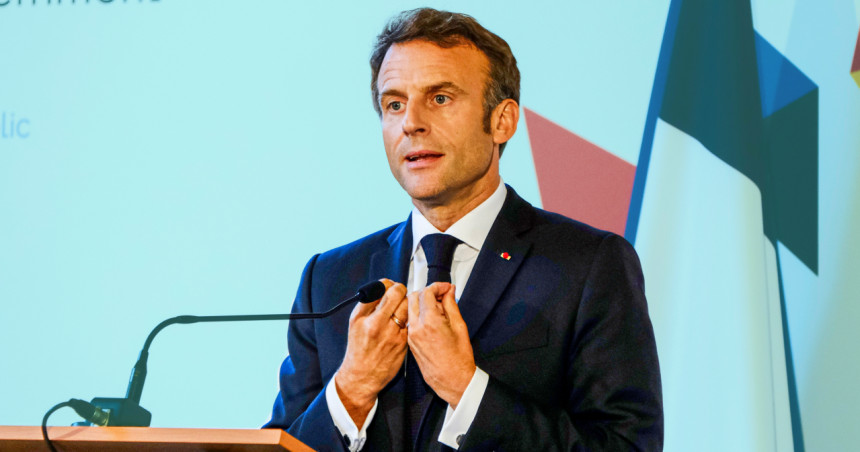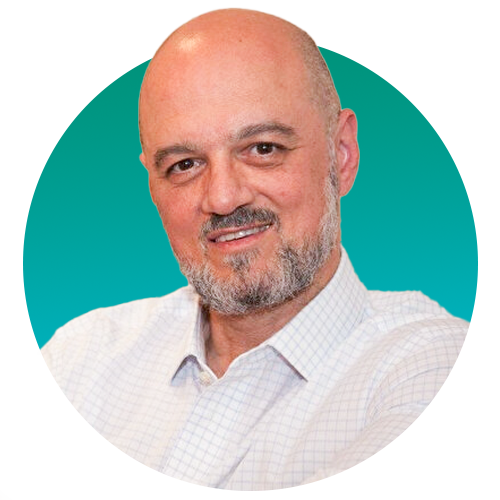French President Emmanuel Macron’s recent statements suggesting the deployment of Western troops in Ukraine, alongside his firm stance against Russia’s aggression, have marked a significant change from his previous positions. [1]
These declarations, made during conferences in Paris and Prague, have drawn both praise and criticism, raising questions about his motives and the implications for European security. [1]
The French leader, serving his second term in office since 2022, said while visiting Prague on 5 March,
“Some powers which have become unstoppable are extending every day, their threat of attacking us even more, and we will have to live up to history and the courage that it requires.” [2]
At a briefing with Czech President Petr Pavel, Macron reiterated,
“For two years, we have repeated at each press conference that war has returned to European soil.
“We have revealed how much military material we have already delivered, and how much we have already spent. Is this our war, or isn’t it?” [3]
In an obvious indication of the alarm bells being rung by Macron’s remarks, Jordan Bardella, President of the far-right National Rally (RN) party, said he had begged him “not to go to war with Russia”, adding that the French leader’s thought process has “no limits and no red lines”. [4]
Macron’s call for unified European response
The French President’s call for military intervention in Ukraine reflects growing concerns about Russia’s hybrid warfare tactics, which have targeted not only Ukraine but also European Union members like France.
Indeed, the French President’s acknowledgment of Russia’s aggressive tactics is what he feels necessitates the need for a unified European response, in order to deter further aggression and safeguard regional stability. [1]
On this point, a former official at the Ministry for Europe and Foreign Affairs and lately visiting fellow in the Europe, Russia, and Eurasia programme at the Center for Strategic and International Studies, Mathieu Droin, said,
“France has been a particular target of hybrid attacks — [for example] cyber, disinformation — recently.
“This probably helped Macron come to terms with the reality of a more aggressive Russia.” [1]
French vision for European autonomy
Macron’s proposal for Western military intervention in Ukraine appears in alignment with his broader vision for strategic European autonomy, while lessening dependence on the United States for security guarantees.
Speaking about the contentious issue of Taiwan, he said during an interview onboard Cotam Unité,
“The paradox would be that, overcome with panic, we believe we are just America’s followers.
“The question Europeans need to answer … is it in our interest to accelerate [a crisis] on Taiwan? No. The worst thing would be to think that we, Europeans, must become followers on this topic and take our cue from the US agenda and a Chinese overreaction.
“If the tensions between the two superpowers heat up … we won’t have the time nor the resources to finance our strategic autonomy and we will become vassals.” [5]
It is evident that Macron’s warnings about the need to expand Europe’s security partnerships reflect growing concerns about the unreliability of US support in the face of evolving geopolitical challenges, be that with Israel and Gaza, Russia and Ukraine, or elsewhere.
Eastern Europe embracing shift in direction
While his proposal for military intervention in Ukraine has faced scepticism from some NATO allies, it has been welcomed by Eastern and Central European countries, who have long advocated for a more challenging stance against Russia.
Artin DerSimonian, a research fellow in the Eurasia programme at the Quincy Institute for Responsible Statecraft, told the broadcaster Al Jazeera,
“Undoubtedly, concerns about a second Trump presidency have woken Europeans up to the fact that they need to do more for their own defence.
“Such a realisation across the continent plays into Macron’s push for strategic autonomy.
“Whether or not Macron follows through with his rhetoric, he has certainly won favour in the Eastern part of the continent, which may likely prove useful in future French strategic plans.” [1]
Analysis
ANALYSIS
A recent change of tune
Macron's hard stance on Russia probably began a few weeks ago, and has become more hawkish as the days have gone by.
And I think that there are a number of reasons for this.
Ukraine could lose the war
There is a real prospect of Ukraine losing, actually losing the war.
The best-case scenario was that there would be a stalemate and then a political resolution, but what has been happening over the course of the past couple of months is that Ukraine has been suffering losses, territorial losses, with even the Pope wading in a couple of weeks ago and saying it is not dishonourable to 'raise the white flag' and to seek forgiveness.
And, for instance, the actual commitment of America and others to sending ammunition and heavy artillery to Ukraine, this signifies that Ukraine does face the prospect of losing this war.
And this would be of immense strategic — as well as financial and material — loss, to the West generally, and particularly to Europe, because it's the frontline.
Proactivity before potential Trump return
The other reason is that Macron is one of the European leaders who are concerned about the autonomy of Europe — particularly from America.
With the real prospect of Trump coming back to the White House in January next year, Macron seems to be quite keen, let us say, on trying to resolve this particular issue, so Trump doesn't come and forsake the whole thing, pull America out, say there is no need for the war, that he doesn't want to pay — you know, the things that Trump usually says!
And that way, Europe would be left to its own devices, in terms of either financing Ukraine or facing the consequences of a Ukrainian defeat.
Macron, the Napoleon of Europe
I personally believe that Macron sees himself as being the Napoleon of Europe right now; he sees himself as being someone who is the guardian of the EU in particular.
Maybe those are aspirations of his, maybe those are concerns of his, but I truly believe that he is behaving in a way that alludes to his own vision of himself being the almighty leader of Europe.
Tying in the dire Gaza situation
Let us not forget what's happening in Gaza, as it has, in a way, put things into a particular perspective, that it's not military might, it's not lobbying power, it's not financial clout... there is something else that actually determines the outcome of a battle.
And the way things are going, even in Gaza, from the PR or even a territorial perspective, Israel will be defeated, meaning that it has not achieved any of its main objectives, particularly about deconstructing or dismantling the Hamas network.
Israel has failed in doing so, despite just under six months of the most intense and barbaric campaign that we have seen, to the extent that the world is now convinced that Israel has committed genocide.
So, in Macron's mind, this is a lesson, and I believe that with some of the parameters of what has happened in Gaza, he's trying to take stock of those things in the battle for Kyiv.
Source: Islam21c
Notes
[2] https://www.reuters.com/world/europe/frances-macron-urges-allies-not-be-coward-ukraine-2024-03-05/
[3] https://www.wsws.org/en/articles/2024/03/06/cbco-m06.html
[5] https://www.politico.eu/article/emmanuel-macron-china-america-pressure-interview










